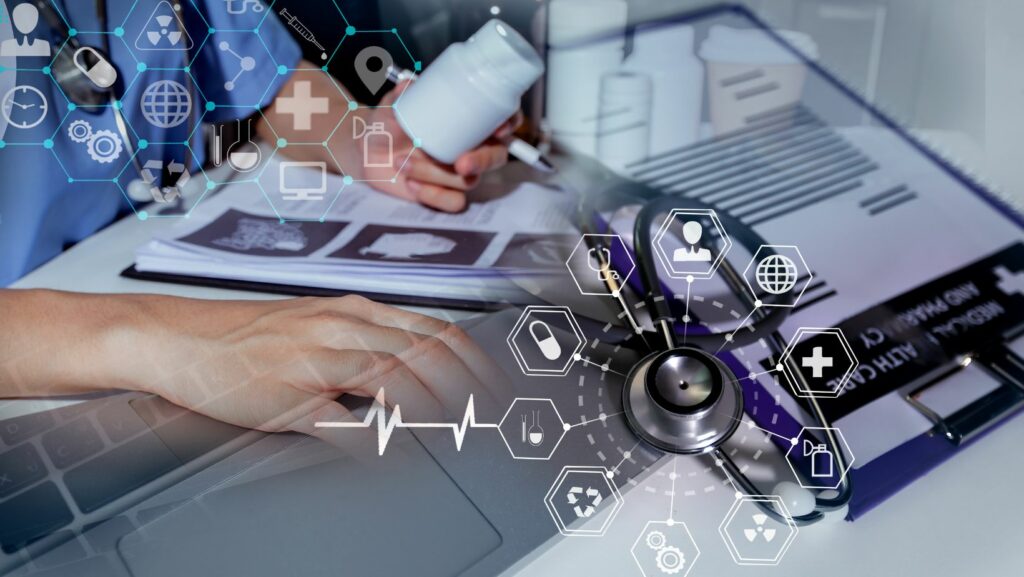The pharmaceutical industry is undergoing a seismic shift as cutting-edge technology transforms how drugs are developed, manufactured, and delivered. Hi-tech pharma leverages innovations like artificial intelligence, blockchain, and advanced analytics to streamline processes and enhance patient outcomes. This new wave of technology not only accelerates drug discovery but also improves safety and efficacy, making treatments more personalized than ever. As the demand for faster and more effective healthcare solutions grows, companies are investing heavily in hi-tech solutions. From digital health platforms to automated production lines, the future of pharmaceuticals is bright and promising. Embracing these advancements is essential for staying competitive in a rapidly evolving market, ensuring that patients receive the best possible care.
Hi Tech Pharma
Hi Tech Pharma represents the convergence of advanced technologies and the pharmaceutical industry. Technologies such as artificial intelligence (AI), blockchain, and big data analytics drive innovation across drug development, manufacturing, and distribution.
- Artificial Intelligence enhances drug discovery by analyzing vast datasets to identify potential drug candidates, predict outcomes, and streamline testing processes. Companies utilizing AI report reduced R&D timelines and lower costs.
- Blockchain ensures the integrity and transparency of supply chains. It offers secure tracking of medications, thereby reducing counterfeits and ensuring compliance with regulatory standards.
- Big Data Analytics plays a pivotal role in understanding patient needs and outcomes. By analyzing patient data, companies can develop personalized treatment plans, improving efficacy and satisfaction.
As healthcare demands evolve, hi-tech solutions are critical for maintaining competitiveness and meeting patient expectations. The pharmaceutical landscape increasingly relies on these innovations to enhance efficiency and effectiveness. This trend signals a robust future for the industry, with continuous investment into modern technologies shaping pharmaceutical practices.
Key Innovations in Hi Tech Pharma
Hi-tech pharma innovations are transforming how medications are developed and delivered. These advancements focus on improving patient outcomes and streamlining processes across the industry.
Advanced Drug Delivery Systems
Advanced drug delivery systems enhance the efficacy and targeting of medications. These systems include:
- Nanotechnology: Utilizes nanoparticles to deliver drugs at a cellular level, increasing absorption and reducing side effects.
- Smart Inhalers: Incorporate sensors to monitor usage and provide real-time feedback, resulting in better management of respiratory diseases.
- Transdermal Patches: Allow for sustained medication delivery through the skin, improving compliance and patient convenience.
These innovations ensure that medications reach their intended site of action more effectively, providing faster relief and improved overall health outcomes.
Biotech Developments
Biotech developments are crucial for the advancement of personalized medicine. Key areas include:
- Gene Therapy: Addresses genetic disorders by modifying genes at their source, offering potential cures rather than mere treatments.
- Monoclonal Antibodies: Used in targeted therapy, these antibodies are engineered to target specific cells, minimizing damage to healthy tissue and enhancing treatment effectiveness.
- CRISPR Technology: Enables precise editing of genes, paving the way for innovative treatments in various diseases.
These biotech advancements play an essential role in developing tailored therapies, improving patient outcomes, and fostering long-term health solutions.
Impact on Healthcare
Hi-tech pharma significantly influences healthcare by fostering advancements that enhance patient care and treatment efficiency.
Personalized Medicine
Personalized medicine emerges as a cornerstone of hi-tech pharma’s impact on healthcare. By leveraging advanced technologies, pharmaceuticals can develop treatments tailored to individual genetic profiles and unique health conditions. For instance, gene therapy targets specific genetic anomalies, enabling precise interventions. Additionally, monoclonal antibodies provide targeted treatment options for diseases like cancer, significantly improving patient responses. Such tailored approaches enhance treatment efficacy and minimize adverse effects, resulting in better overall patient outcomes. The integration of big data analytics also facilitates the identification of patient subgroups, allowing companies to design clinical trials that reflect diverse populations, thus ensuring broader accessibility and relevance of new therapies.
Cost Reduction and Efficiency
Cost reduction and efficiency enhancements represent another critical impact of hi-tech pharma on healthcare. Advanced technologies streamline drug development processes, significantly decreasing research and development timelines. For example, artificial intelligence expedites drug discovery by analyzing extensive datasets, resulting in shorter timeframes from concept to market. Furthermore, blockchain technology secures supply chains, reducing the financial burden associated with counterfeits and compliance issues. Efficient drug delivery systems, such as smart inhalers and transdermal patches, optimize medication administration, minimizing waste and improving adherence. These innovations collectively lead to lower healthcare costs and increased access to essential treatments for patients.
Challenges Facing Hi Tech Pharma
Hi tech pharma faces various challenges that impact its growth and implementation of advanced technologies. Regulatory hurdles and ethical considerations represent significant obstacles that companies must navigate.
Regulatory Hurdles
Regulatory hurdles hinder the rapid integration of technologies in the pharmaceutical sector. Approval processes can extend timelines, delaying the introduction of innovative treatments. Regulatory bodies, such as the FDA in the United States, require extensive data to validate safety and efficacy. Compliance with guidelines for new technologies involves rigorous testing and documentation, demanding significant resources. For example, AI-driven tools to predict drug efficacy must undergo validation to gain necessary approvals. This complexity can stifle innovation, especially for smaller companies that lack resources compared to larger pharmaceutical firms.
Ethical Considerations
Ethical considerations in hi tech pharma are paramount as companies embrace advanced technologies. The use of patient data for AI and big data analytics raises questions about privacy and informed consent. Ensuring transparent communication around data usage is critical to maintain trust. Additionally, personalized medicine, while beneficial, poses concerns regarding equitable access. Patients may experience disparities in treatment accessibility based on socio-economic factors. Companies must develop strategies to address these disparities while balancing innovation and ethical responsibility. Engaging stakeholders throughout the development process can foster better understanding and support for ethical practices in hi tech pharma.
Future Trends in Hi Tech Pharma
Future trends in hi-tech pharma indicate a dynamic shift towards more integrated technologies that enhance efficiency and patient care.
Personalized Medicine Expansion
Personalized medicine continues to evolve, leveraging genomic data to tailor treatments. Companies focus on precision therapies using genetic profiling to optimize drug effectiveness for individual patients. This approach increases patient adherence and minimizes adverse reactions.
Automation and Robotics
Automation and robotics play a significant role in pharmaceutical manufacturing. Streamlined processes through automation reduce human error and operational costs. Robotics in drug distribution enhance accuracy and speed, ensuring timely delivery of medications to healthcare providers.
Integration of Artificial Intelligence
Integration of artificial intelligence for data analysis becomes more prevalent, enabling predictive analytics in clinical trials. AI algorithms identify patient cohorts and suggest optimal treatment paths, enhancing trial efficiency and reducing timelines.
Telemedicine and Mobile Health Solutions
Telemedicine leverages digital platforms for remote consultations, making healthcare access more convenient. Mobile health applications enable continuous monitoring of patients’ health, allowing early intervention and personalized care strategies.
Advanced Supply Chain Technologies
Advanced supply chain technologies utilize IoT and blockchain for real-time monitoring and tracking of medications. This enhances transparency and traceability, which significantly reduces the risk of counterfeit drugs entering the market.
Sustainable Practices
Focus on sustainability drives innovations in environmentally-friendly drug manufacturing and packaging. Pharmaceutical companies adopt green chemistry principles, reducing waste and promoting eco-friendly practices throughout the product lifecycle.
Data Security Enhancements
Data security enhancements become critical as companies safeguard patient information. Advanced encryption methods and secure blockchain networks ensure compliance with regulations and preserve patient privacy.
Collaboration and Partnerships
Collaboration within the pharma industry increases as companies partner with tech firms for innovation. Joint ventures facilitate the exchange of expertise, accelerating the development of cutting-edge therapies and solutions.
These trends highlight the transformative nature of hi-tech pharma, indicating a future characterized by enhanced practices, improved patient outcomes, and greater operational efficiency.
The evolution of hi-tech pharma is reshaping the landscape of healthcare. With innovations like AI and blockchain driving efficiency and transparency, the industry is poised to deliver better patient outcomes. Personalized medicine is at the forefront, tailoring treatments to individual needs and enhancing overall efficacy.
While challenges such as regulatory hurdles and ethical considerations remain, the commitment to advancing technology and improving patient care is unwavering. The future promises even more integration of cutting-edge solutions, ensuring that the pharmaceutical industry continues to evolve. As companies collaborate and innovate, the potential for transformative change in healthcare is immense.



